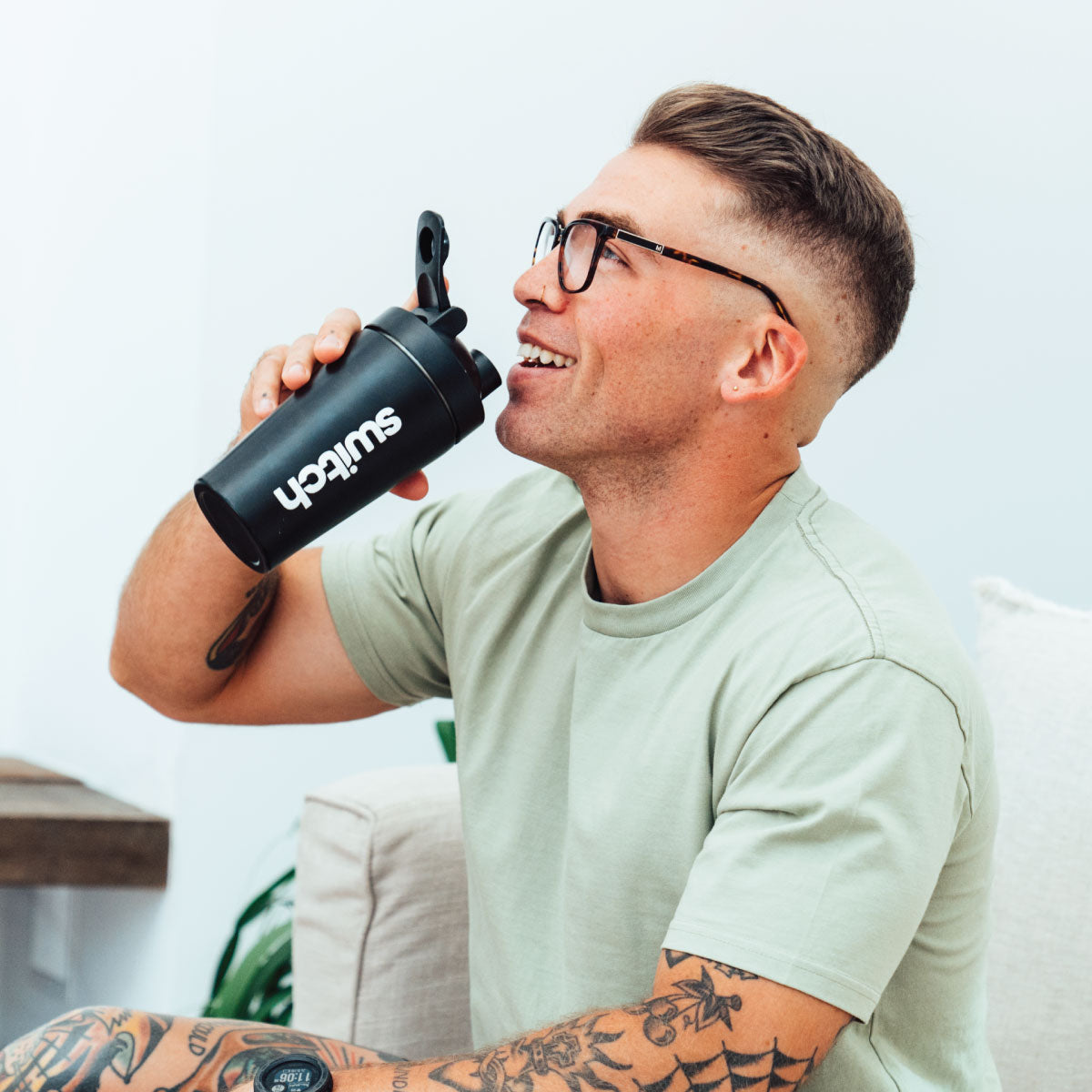
What You Should Know About Collagen For Skin Health
Collagen is the main component of connective tissue that makes up our hair, nails, bones, skin, blood vessels, digestive tract and more. It is the most abundant protein found in the human body[1].
Although it’s the most abundant protein, it's also needed for the greatest amount of human tissue. This means a supplement is often required. Collagen supplements are frequently looked at as the key to the fountain of youth, many people will use it in hopes of improving their hair, nails and skin. Reducing fine lines, wrinkles and other age related degeneration.
Is this TRUE? Can you use collagen to help with skin health and appearance? Well, a recent 2018 study showed that supplementation of collagen could help improve elasticity and reduce wrinkling in human skin[2].
So, the question remains, is collagen an effective way to help with skin rejuvenation? In today’s article, we’ll be explaining the function of collagen and what it does, and whether it can heal wounds, scarring and even tattoos.
Keep reading to learn more!
What is its function? What does it do?
Your body uses collagen to make connective tissue.
This type of tissue is then used to connect with others. Collagen helps tissue by making it capable of withstanding stretching and it helps them to become strong and resilient.
Collagen fibers provide a support structure for the cells in our skin, this keeps them from sagging. As we age collagen production begins to decline, we begin to lose the plumpness in our skin and wrinkles and fine lines may appear.
Think of it as support and structure for different aspects of your body. It strengthens bones and provides our skin with structure along with many other things[3].
Can it heal wounds? Scars? Tattoos?
Collagen is often used in hopes of improving/healing wounds, scars, tattoos and skin in general. However, is there any evidence that it works?
Eight volunteers participated in a study comparing regular primary closure for wounds, and a topical collagen powder[4]. Primary closure usually consists of some form of a suture[5].
Each volunteer had one wound treated with the topical collagen powder, and the other with primary closure.
They found that 6 out of the 8 collagen treated wounds healed after 4 weeks. And all wounds healed completely after the second biopsy.
They concluded that the wounds treated with collagen powder healed just as well as primary closures.
Although you may never need to know how to apply collagen powder to wounds, this shows that it does have a healing effect when used.
When your skin’s injured in any way, whether it’s from abrasion or a tattoo, collagen makes new tissue to help reseal itself[6]. Collagen fibres work to repair any broken skin and close any open areas. This may help improve the colour and longevity of the tattoo.
With that said, can collagen supplements help wound healing?
It’s said their fibers are too large to penetrate the outer layers of our skin. There doesn’t seem to be any research that supports the claim that shorter chains of collagen (peptides) are successful at doing this.
However, different supplements such as collagen peptide powders could be more effective. The body might be able to absorb them easier.
A recent study showed some promising results, oral collagen supplements could help with[7]:
- Skin aging
- Wound healing
- Dermal collagen density
- Skin elasticity and hydration
A lot of the early research about collagen supplements and their effects on the skin is promising. However, more research is needed.
Conclusion - Collagen for Skin Health
Collagen is an essential component of the connective tissue that makes up many aspects of our body. In fact, collagen for skin health is a natural process that occurs. And from our muscles to our bones, collagen works to strengthen and support many areas.
Early studies show great promise that oral collagen peptide supplements for wound healing, skin aging and more may be highly beneficial.
As more research is done, we’ll begin to learn more about the positive effects that collagen supplementation can have on our bodies. If you are considering a collagen supplement be sure to make sure it ticks the following boxes…
- Is hydrolysed
- Contains type I, II & III collagen peptides.
- Is multi sourced (Marine & Bovine)
- Contains added L-Tryptophan
- Contains Vitamin C to boost collagenase
Make sure you consume at least 10g of collagen daily and for severe trauma (broken bones, surgery recovery, joint damage, tattoo recovery, abrasions and cuts) consider 20 - 40g daily.
If you have any questions about any of the information included in here or any of our products, please don't hesitate to be in touch. Email us at hello@switchnutrition.com.au or message us on Facebook!
Disclaimer: The above article is merely a guide and is in no way a recommendation or a treatment protocol for any health conditions or diseases. You should always consult with a qualified healthcare provider before changing your supplement, training, or nutritional strategy. Formulated Supplementary Sports Foods must not be used by pregnant or breastfeeding women, anyone consuming prescription medication or children under the age of 15 unless advised by a qualified healthcare provider.
[1] Harvard. Collagen. https://www.hsph.harvard.edu/nutritionsource/collagen/#:~:text=Collagen%20is%20the%20most%20abundant,muscles%2C%20tendons%2C%20and%20cartilage.
[2] Kim D., Chung H., Choi J., Sakai Y., Lee B. (2018). Oral Intake of Low-Molecular-Weight Collagen Peptide Improves Hydration, Elasticity, and Wrinkling in Human Skin: A Randomized, Double-Blind, Placebo-Controlled Study. https://www.mdpi.com/2072-6643/10/7/826
[3] De Walle G. (2021). Top 6 Benefits of Taking Collagen Supplements. https://www.healthline.com/nutrition/collagen-benefits#basics
[4] Science Daily. (2019). Collagen effective in wound closure. https://www.sciencedaily.com/releases/2019/07/190708140044.htm
[5] Azmat C. (2021). Wound Closure Techniques. https://www.ncbi.nlm.nih.gov/books/NBK470598/#:~:text=In%20primary%20wound%20closure%2C%20sutures%20are%20the%20standard%20of%20care.
[6] Cleveland Clinic. (2021). Scars. https://my.clevelandclinic.org/health/diseases/11030-scars
[7] Choi F., Sung C., Juhasz M., Mesinkovsk N. (2019). Oral Collagen Supplementation: A Systematic Review of Dermatological Applications. https://pubmed.ncbi.nlm.nih.gov/30681787/

